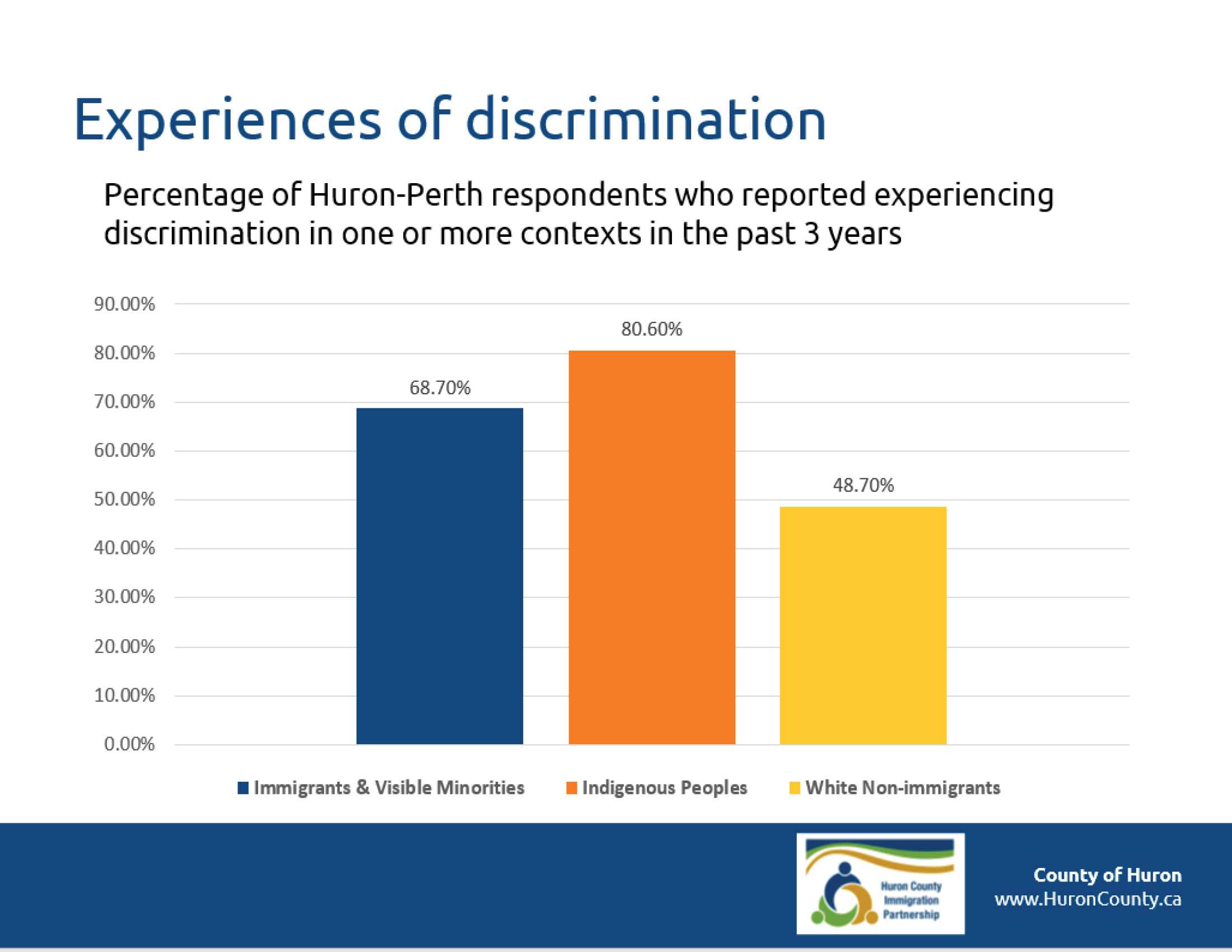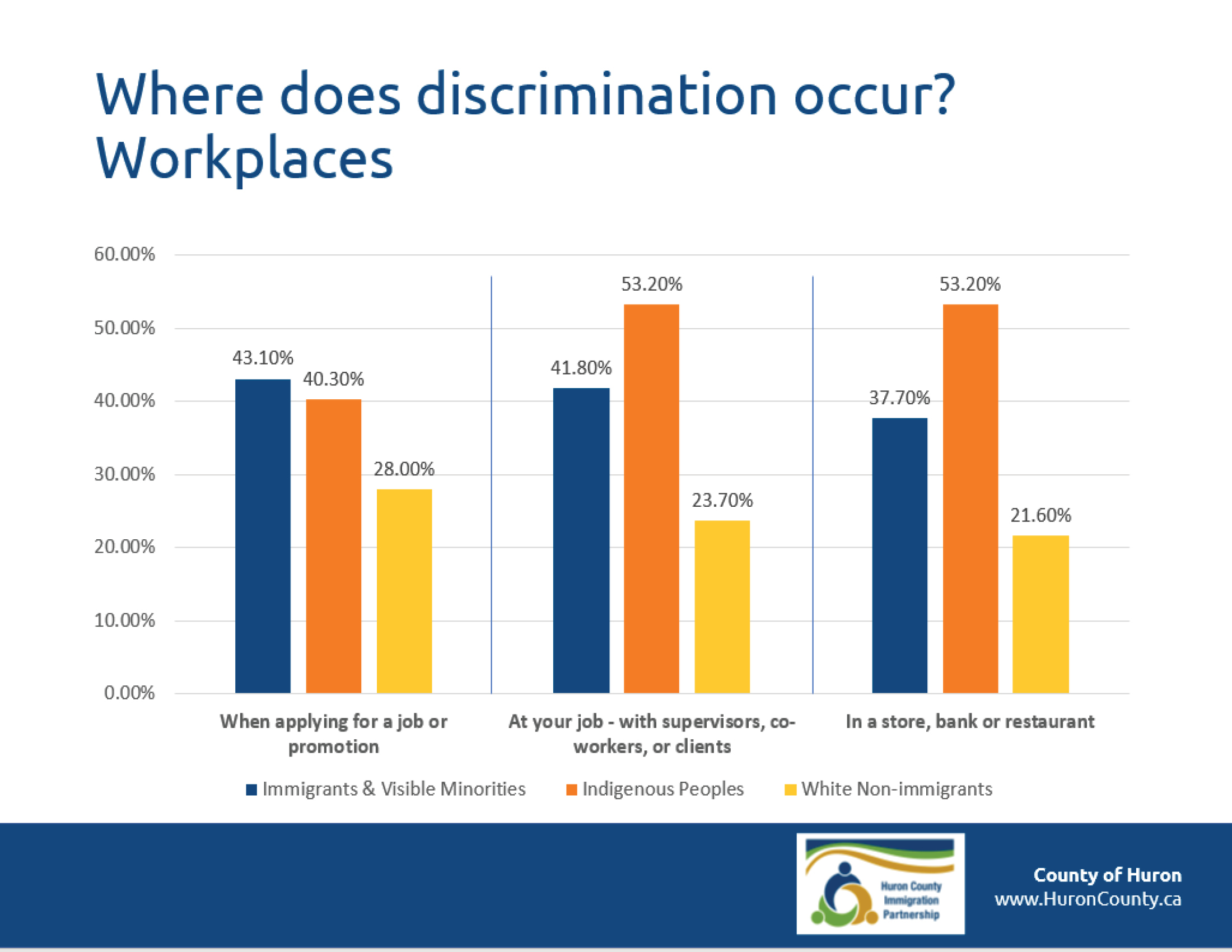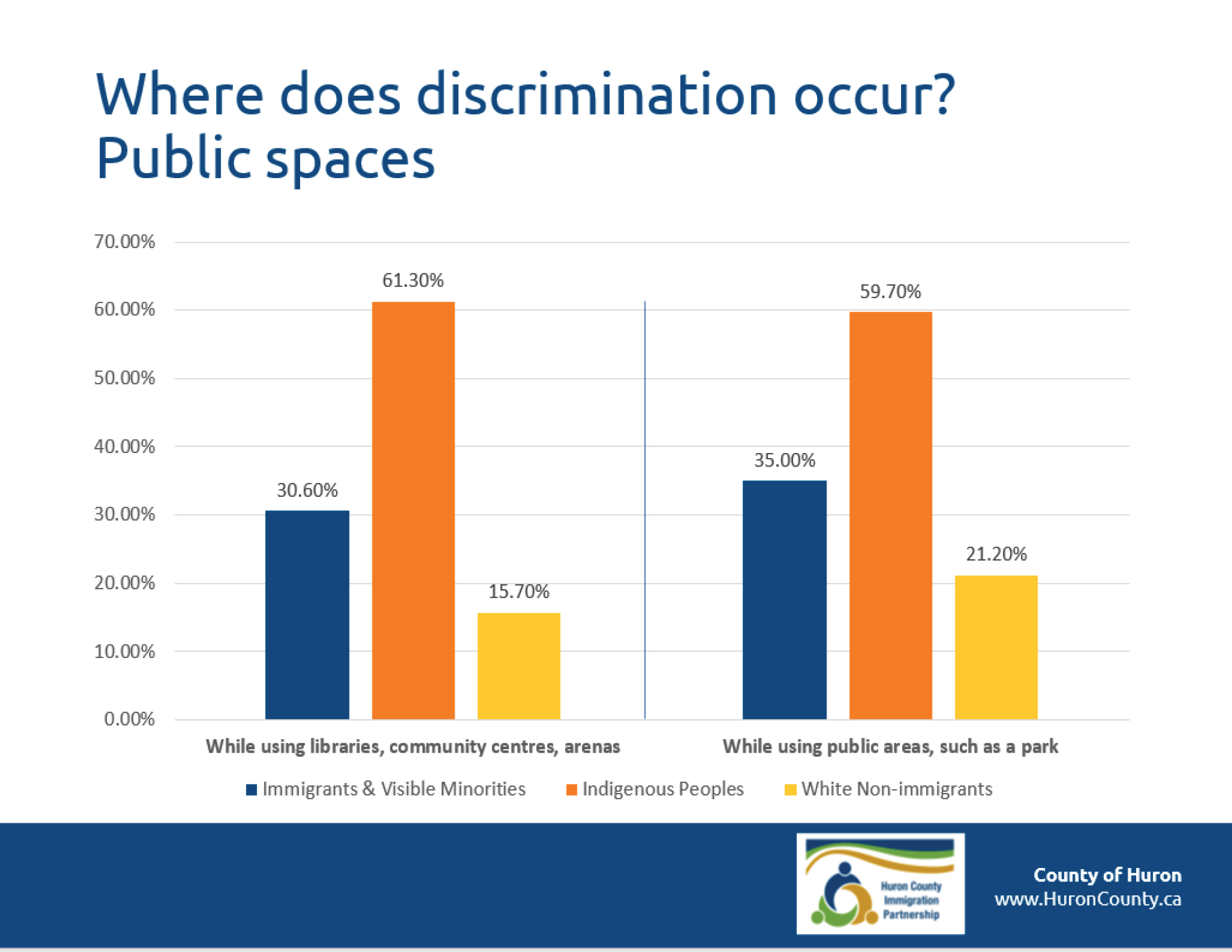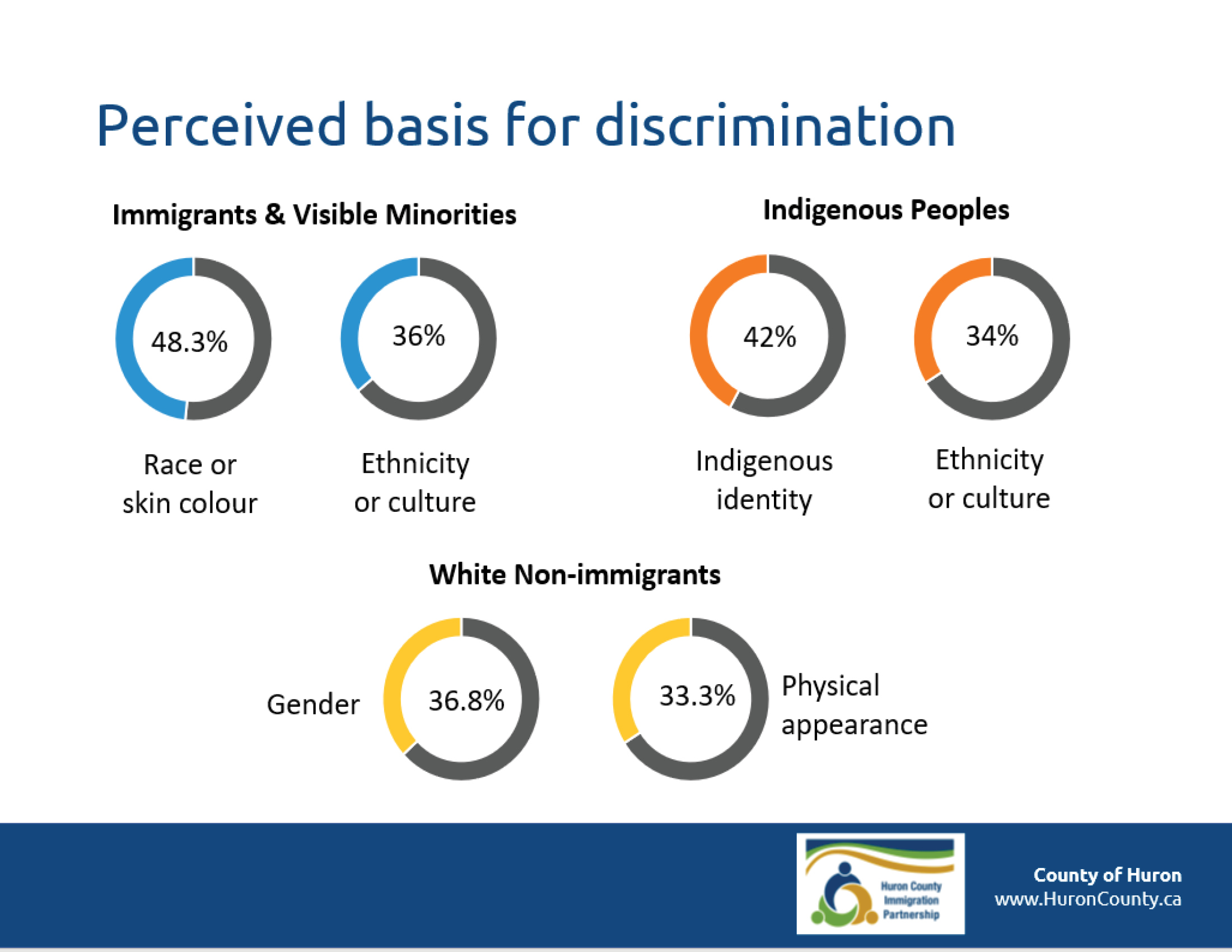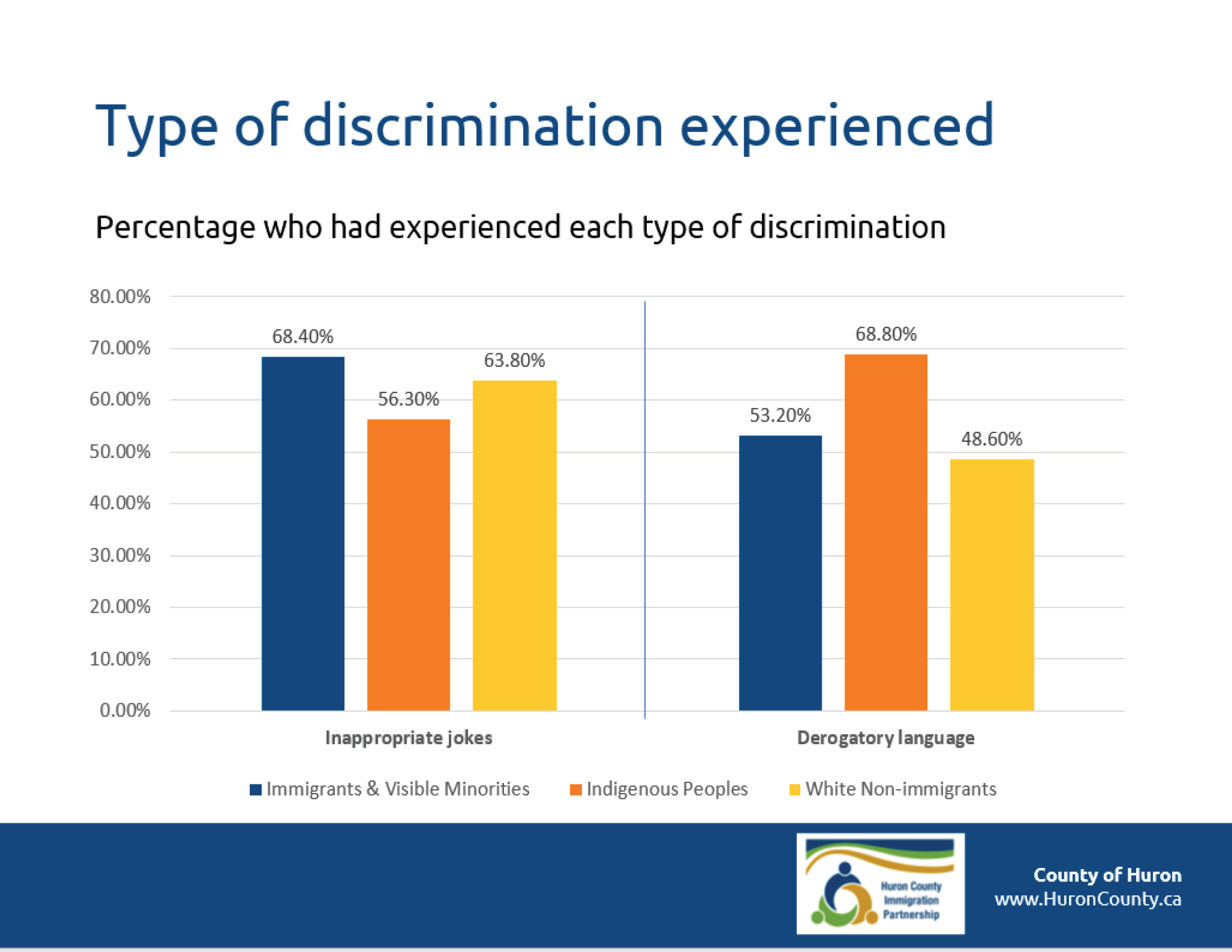Research
Huron-Perth Immigrant Survey
(Conducted in November 2023)
Key findings about the survey respondents:
- 195 immigrants and newcomers to Canada participated in the survey and represented some of the major categories of immigrants – family, economic and temporary work visas
- 65% of participants indicated that they were newcomers, living in Canada for less than five years
- 62% of participants indicated they are a racialized person (i.e. they hold at least one non-white racial identity)
- 92% of participants reported speaking English well and 89.4% reported being proficient in reading and writing in English
Community Integration
- 69% said their community was welcoming
- 60% reported they would be recommend their community to other immigrants to move to
- 69% of participants in Huron and 65% in Perth reported they felt a sense of belonging in their communities
- 37% reported volunteering, with most volunteering with organizations focused on immigrants and newcomers, religious services, or sports and recreation
Education, Employment and Income
- 43% reported that their level of international education did not corresponded with the level of their Canadian job
- 76% were employed (full-time and part-time, including self-employed or owning their own business)
- 40% reported that their income was not enough for their household needs
Key Challenges and Solutions
- The cost of living and financial issues was the biggest challenges identified, with 53% in Huron and 41% in Perth expressing this concern in the past year
- The most helpful change suggested by participants to better support other immigrants in Huron and Perth Counties was:
- Implement better programs for immigrants to find work or start a business (34%)
- Improve the availability of public transportation (28%)
- Have more affordable housing available (26%)
- Improve social integration (23%)
- Increase education for employers on hiring, retaining and promoting immigrants (23%).


Research
Discrimination Experienced by Immigrants, Visible Minorities, and Indigenous Peoples in Huron-Perth: An Empirical Study
(Conducted in 2021)
Key findings:
- Indigenous People and Immigrants and Visible Minorities disproportionately reported experiencing discrimination in Huron and Perth Counties in one or more contexts in the past three years
- 80.6% of Indigenous People reported experiencing discrimination
- 68.7% of Immigrants and Visible Minorities reported experiencing discrimination
- 48.7% of White Non-immigrants reported experiencing discrimination
- Work environments were the most commonly cited places where discrimination occurred for Immigrants and Visible Minorities and white Non-Immigrants
- Indigenous People reported experiencing discrimination in public spaces most frequently
- The most frequent types of discrimination experienced were inappropriate jokes and derogatory language
- People who experience discrimination were more likely to report experiencing anxiety or depression, and less likely to report feeling like they were accepted or welcomed in Huron or Perth Counties

Background:
In March 2021, the Huron County Immigration Partnership worked with a team of Western University researchers to produce a survey and study that investigated discrimination as experienced by immigrants, visible minorities, and Indigenous people in comparison to people who are not members of these groups. The research was funded with support from Immigration, Refugees, and Citizenship Canada.
The research team randomly called thousands of Huron and Perth residents, including Stratford and St Mary’s, with 595 people taking part in the survey. Among the participants:
- 62 identified as Indigenous
- 297 identified as a visible minority or immigrant
- 236 identified as white non-immigrants
Recommendations:
The research provides three key recommendations to address discrimination in Huron and Perth Counties. They include:
- Develop a mechanism where acts of discrimination can be reported.
- Support victims of discrimination to access appropriate mental health support.
- Create anti-discrimination strategies that addresses discrimination in places where it frequently occurs, the forms it is most often relayed, and to the people who most frequently perpetuate it.
How Can We Help?
Huron County Immigration Partnership is always excited to support newcomers to Huron County. Let us know how we can help!
Find Us
57 Napier Street,
Goderich, ON, N7A 1W2
Canada
Phone
+1 (519) 524-8394 ext.6






